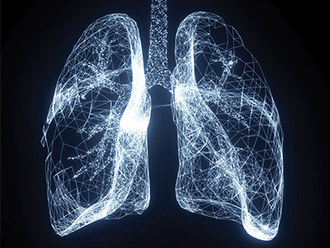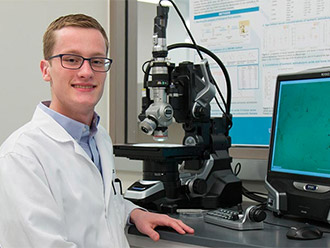By resurrecting water fleas from preserved eggs, one UT Arlington researcher hopes to uncover the evolutionary effects of nuclear testing.
Matthew Walsh, an associate professor of biology, traveled to Utah last summer to collect sediment cores containing the preserved eggs of Daphnia, a type of water flea, from lakes in the fallout zone of nuclear testing conducted during the 1950s. Each layer of the sediment core represents a distinct time period and contains a generation of water flea eggs that sunk to the lake floor. Dr. Walsh will hatch eggs from before, during, and after nuclear testing took place and measure the water fleas’ viability and traits.
“We have no real experimental sense of the long-term evolutionary impacts of nuclear testing, only the common belief of nuclear-induced mutation,” Walsh says. “This process allows us to look at nuclear genetic impacts across decades, study their effects in real time, and provide new insights into whether any nuclear-induced mutations degrade over time.”
His research is supported by a $200,000 EAGER grant from the National Science Foundation.


